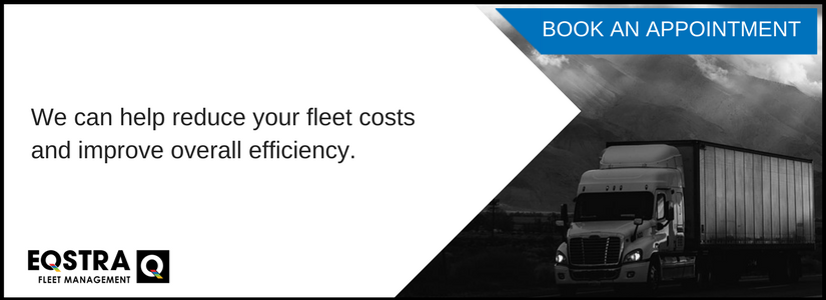
Choosing vehicles for your fleet can be a nightmare if you’re trying to please people based on hierarchy, heritage, and don’t have a clear policy in place. Here are five things holding you back from acquiring the right cars for your fleet.
Every fleet manager knows that when it comes to acquiring new vehicles the process often involves a minefield of admin and opinions that often have very little to do with whether the new vehicles will actually be fit for the purpose it is intended.
Just like sport, everyone has an opinion on vehicle brands, and internal negotiations during the buying process can often be a nightmare for fleet managers. The last thing any fleet manager wants to do is sacrifice fleet efficiency just to keep the ‘status quo’, but this happens surprisingly often. The reasons can be narrowed down to five main factors that keep you from buying the ideal vehicles for your fleet:
Hierarchy, heritage and status
Established company norms and hierarchy have a big influence on vehicle buying decisions. Whether you’re new to the fleet management position, or simply trying to optimise the existing fleet, chances are you’ll have a battle on your hands.
Company hierarchy often plays a big role. Depending on the size and type of the company, you may have a situation where mid-level employees can choose between three types of cars, whilst the executive-level have free reign. Many fleet managers find themselves in a situation where the vehicles available to mid-level employees have been chosen based on price or status, and are often completely unfit for their purpose.
Willie Venter, former Fleet Consulting Manager at EQSTRA Fleet Management, says “Fleet Managers regularly find themselves battling internal politics in order to optimise their fleet. Companies become entrenched in a certain way of doing things, but a good fleet manager will quickly pick up if this is negatively affecting fleet operations. The trick is to arm yourself will all the relevant data so you can show where the company is losing money and what you propose as a solution. Don’t get involved with the politics – show them the facts.”
Brand perception
Outdated brand perception is the bane of vehicle manufacturers and fleet managers alike. The best fleet managers are those who stay up-to-date with all the latest advances in the vehicle industry. They’ll have an excellent overview of which brands are the best options for their business. The problem is that brand perception often skews the view of those making the final purchasing decision, but also many fleet managers.
Both the perceived status and the perceived risk play a larger role in these decisions than they should. It’s true that certain vehicle brands can usually be considered a ‘safe bet’, but are these safe bets really the best options for your fleet? Quite often such brands have capitalised on their good reputation and tend to charge a premium for parts and servicing. Lesser known brands are often just as reliable, but offer much lower parts and servicing costs. And these brands have often been around for decades – they’re by no means ‘new’ – they simply haven’t reached the top echelons of brand perception yet as that takes many years to achieve.
“Limiting your company to only a handful of brands can be a costly exercise,” says Willie, “what if your preferred vehicle brand doesn’t offer a model that fits the purpose of your fleet? Don’t make the mistake of choosing the vehicle that ‘almost’ fits the purpose, just because it carries the badge that your company is used to. No matter how good the manufacturer is, if the vehicles aren’t fit for purpose, you will end up with unnecessary costs.”
Initial Cost VS TCO
Whether you’re buying for a fleet or for yourself, today’s vehicle prices are all a little terrifying. However, fleet managers must always keep the Total Cost of Operation (TCO) in mind, rather than the initial sticker price. Opting to pay less on the initial purchase, can end up costing you much more down the line.
According to Willie, “Fleet managers should do a full TCO comparison when choosing new vehicles for the fleet, and the sticker price is just a small part of this. Fuel consumption, service intervals and costs, parts availability (which affects downtime), and a host of other factors all add up to your TCO. Only when you have all this information can you make the best decision for your fleet.”
Lack of data and resources
It is often near impossible for fleet managers, no matter how good they are, to keep track of every detail of every vehicle and manufacturer in the country. Changes and development in the vehicle industry happen and lightning speed, and keeping track is essentially a full-time job.
As a result, fleet managers often have to make big decisions about their fleet without access to all the relevant information. Quite often fleet managers only have a short window of time to select and acquire vehicles in order to keep their fleet running at full capacity, and it’s at this time that they need access to the right information.
Fleet management is a hands-on job, and many fleet managers don’t have the time required to do all the research, by working with a reputable fleet partner, fleet managers gain access to all the information and data that they simply don’t have the time to research themselves. Fleet management companies also have access to real-world data collected over many years, which is crucial when you’re making expensive decisions.
Lack of clear policy
Outdated, or a lack of, a company fleet policy is another hindrance to ensuring you add the right vehicles to your fleet. Whether it addresses company hierarchy, outsourcing or budget, fleet managers need to ensure their company fleet policy always has fleet optimisation as its end goal.
Drawing up a clear and concise fleet policy, that is supported by management, will help fleet managers navigate the stumbling blocks mentioned above.
